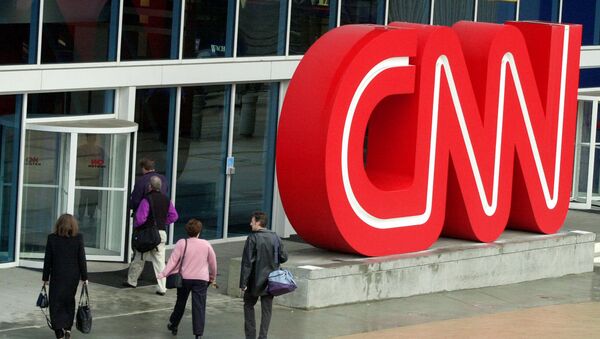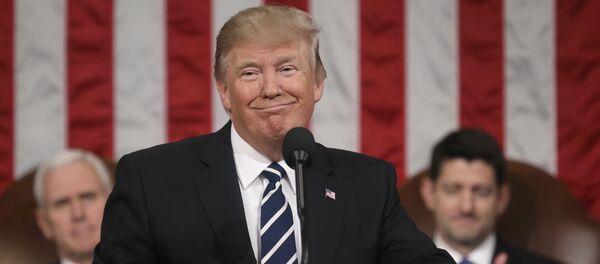"Much of the media is now just another part of the partisan divide in the country with Republicans not trusting the "mainstream" media and Democrats seeing them as reflecting their beliefs," said Harvard-Harris co-director Mark Penn. "Every major institution from the presidency to the courts is now seen as operating in a partisan fashion in one direction or the other."
Eighty percent of Republicans echoed President Donald Trump's claims that the press is filled with fake news stories, while 60 percent of independents and 53 percent of Democrats said the same. Eighty-four percent of those polled also said that they had a tough time trusting online outlets, believing that many of them also spread fake stories.
Sputnik reached out to Christopher Chambers, a professor of journalism with Georgetown University, who said that the number of Democrats who bemoaned the amount of fake news in the media were "not an anomaly, if you look at it terms of a sensationalist mainstream media trying to grab eyeballs and clicks by running unvetted stories or giving them credence to get the benefit of hype to advertisers, then quietly dropping them."
"That is different from the view of many Republicans, particularly Trump diehard supporters — and this includes evangelical Christians, who feel that legacy media outlets are actually manufacturing the news to hurt Trump, not merely running spurious or specious stories," he told Sputnik.
However, 60 percent of those polled believed that Trump is unfair to the media in his frequent criticisms. Forty-eight percent said that the opposite was true, that the media treats Trump unfairly. "Voters show concern about direct attacks on the media by the president even when they have questions about it," Penn explained.
"It is very clear in the poll that overwhelming majorities of the country take leaks and potential political unmasking of members of the Trump campaign in wiretapped conversations merit full and even independent investigation."
Chambers had a somewhat different take. "The president's propensity to make matters worse by obstreperous comments or a chaotic chain of command probably cuts in favor of fairer press treatment — in other words, they are merely covering drama of his own making," he said.
Sputnik asked Chambers about the future of mainstream media if so many consider it to be untrustworthy or manipulative. "I think it's up to media outlets to affirm openly and daily that their sources aren't bogus and their editorial decisions fair and transparent, and any conflicts made open regarding corporate ownership that might make it a tool of Wall Street, etc., or political bend that might make it propaganda," he replied.
"The legacy media here still carries a strong brand, and they have the resources that curating news sites or partisan blogs do not have — to investigate and report-out hard news and feature material, get access to human and data source material, have professional editors shape it, then push it out over many different technological platforms. That's journalism, and that will never change."
"Most importantly we need to look in the mirror, too. Do we want to lay back and gorge on and repost infotainment and opinion, or do we want to put in the hard work of processing facts? Buried in that poll, I suspect, is our unwillingness to do the latter, sadly," he concluded.
The Harvard-Harris Poll is conducted in a collaboration between the the Harvard Center for American Political Studies and The Harris Poll. The poll was conducted over 2,006 registered voters between May 17 and 20.
The poll was wide-ranging. In a survey of the likability of various Washington leaders, Senator Bernie Sanders was the only one to break 50 percent favorability, with 55 percent, while Hillary Clinton, Donald Trump, and Nancy Pelosi all fell between 51 and 55 percent unlikability.
The poll also found that health care, national security and the economy were the three most pressing issues facing the United States in the eyes of the polled individuals. Most respondents (65 percent) thought the US economy was doing well, that former FBI director James Comey was doing poorly as an investigator (60 percent) and that White House leaks were a "serious matter" (74 percent).
In the most one-sided response, 89 percent of respondents said they wanted to see increased bipartisan cooperation and less attacks and vitriol across the political aisle.





